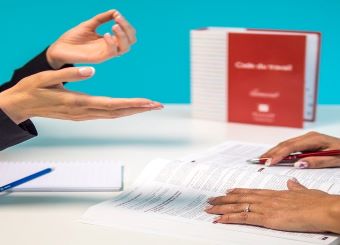The Preservation of Privilege During the Pandemic

Since the announcement of the COVID-19 pandemic, organizations have seen the rise of the remote workforce which presents unique challenges in preventing the inadvertent loss of attorney-client privilege. The attorney-client privilege is the oldest privilege for confidential information recognized at common law. The privilege is intended to encourage full and frank communication between the client and the attorney. More specifically, the attorney-client privilege recognizes that sound legal advice depends on the lawyers being fully informed by the client.
The attorney–client privilege protects confidential information learned by an attorney and protects advice given during the course of the attorney-client relationship. The privilege protects not only information exchanged between a lawyer and client, but also includes persons authorized to act on the lawyer’s behalf. Communicating confidential information to a lawyer’s paralegal or legal assistant, for example, is likely still privileged.
For the privilege to apply, the communication must be made for the purpose of helping a lawyer provide legal services to the client. Communicating with a lawyer for any other purpose— such as asking for public relations advice or business advice for example—may not be privileged. Finally, a communication must be confidential, meaning it is not intended to be disclosed to others beyond the lawyer and client. If someone other than the lawyer and the client are present when the communication is made—even family members, friends, etc.—the client risks waiving the privilege.
Common mishaps occur, for example, when a client is unaware that only legal advice is protected by the privilege. Thus, asking an attorney whether he or she thinks the purchase of a piece of property is a good deal is likely not protected because the attorney would be giving business advice, and not legal advice. Other issues arise when non-lawyer employees do not think carefully about forwarding e-mails, or copying recipients. Suppose an attorney represents an individual employee at a company, and asks the employee through e-mail for some information. When that employee forwards the attorney’s e-mail to another in the company (not represented by the attorney), the attorney’s initial e-mail is no longer confidential and the privilege is waived. Who is copied on an e-mail is also important. For example, if a client writes a detailed factual e- mail to twenty non-lawyers, while copying only one lawyer, it could make it difficult to later claim the e-mail was sent for the purpose of getting legal advice, as opposed to some other purpose and thereby waiving the privilege.
The attorney–client privilege is an important tool necessary for attorneys to effectively represent their clients. But both attorneys and clients should be mindful of how these protections apply, and whether their communications are confidential and protected. Above all, an individual should think twice before sending or forwarding a communication with their attorney so as to not waive the privilege by disclosing the communications, or the content of communications, to third parties.